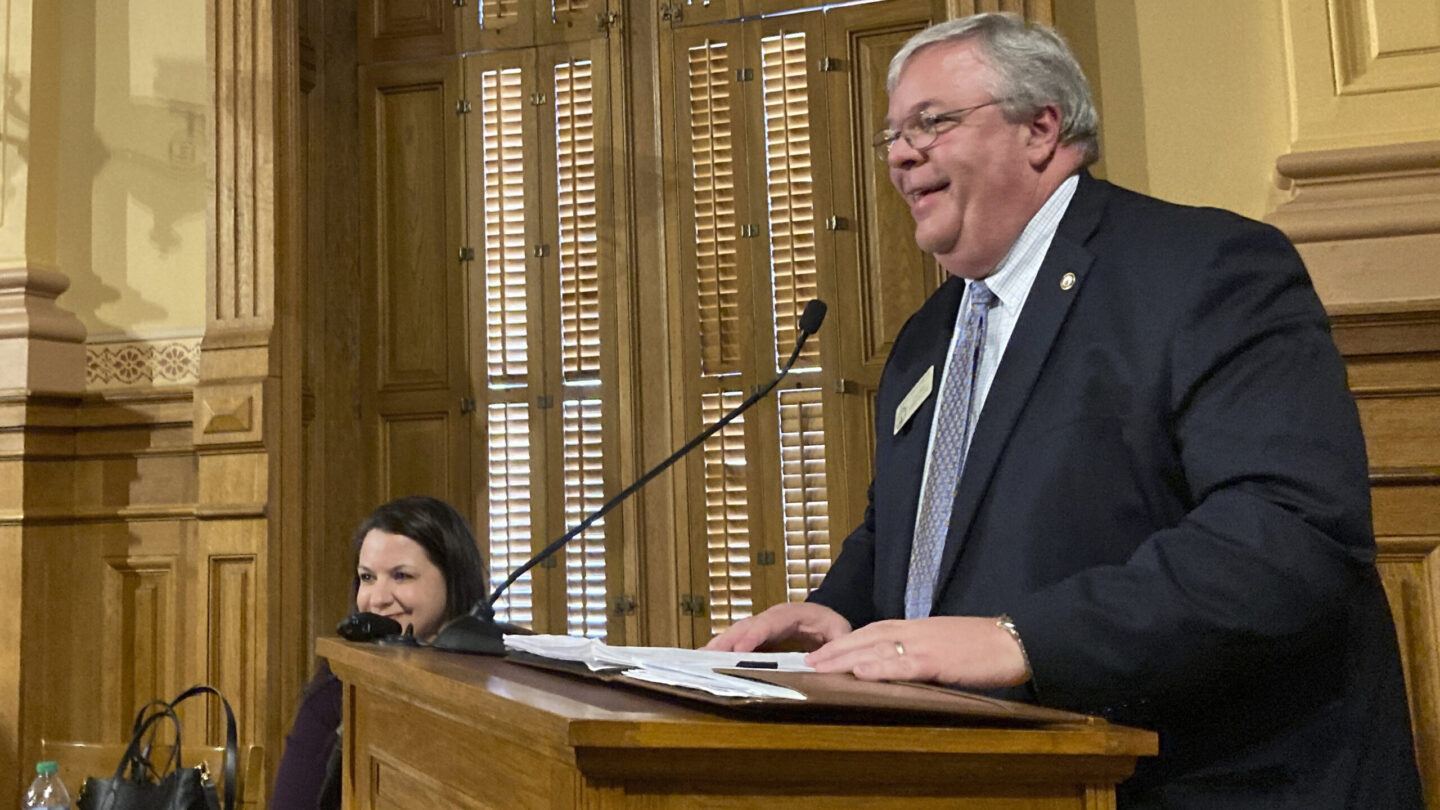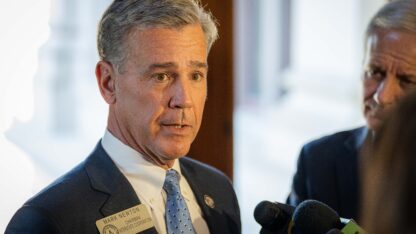Georgia House sticks by 2 scholarship tiers in $32.4B budget

The Georgia House is agreeing to a budget for next year that includes pay raises while underlining spending priorities in public safety and mental health.
The House voted 167-1 for House Bill 19 on Thursday, sending the 2024 spending plan to the Senate for more debate. After the Senate has its say, lawmakers will have to reach agreement before the General Assembly concludes its annual session later this month.
“We know there are some priorities that need additional funding, specifically in behavioral health,” House Appropriations Committee Chairman Matt Hatchett, a Dublin Republican, told House members. “We will continue working with our partners in the Senate and with the governor to keep this momentum going and build upon the items funded in this budget.”
The House backed Gov. Brian Kemp’s plan to give $2,000 raises to state employees. But it voted to double the raise for state law enforcement officers, increasing their pay by $4,000.
Some Democrats objected to the House’s plan to maintain the current two-tier system of lottery-funded HOPE Scholarships. Kemp has proposed going back to the original HOPE Scholarship system, paying full tuition for all high school graduates who earn a B average. Instead, the House voted to pay full tuition for only Zell Miller scholars, which requires students to earn higher grades and a minimum standardized test score. Other HOPE recipients would get 95% of tuition, up from 90% now.
Rep. Stacey Evans, an Atlanta Democrat, said the lottery has enough money to pay full freight for all qualifiers.
“All HOPE scholars all across the state are worthy of our investment in them at 100% if we can afford it, not just those with a 1,200 SAT,” Evans said, referring to the standardized test requirement for Zell Miller scholars.
But Republicans argued that Georgia should give bigger rewards to the highest-performing students.
“Students who’ve been working toward the Zell scholarship deserve to have their hard work acknowledged and a higher payment,” Hatchett said,
The budget also emphasizes paying higher reimbursement rates to healthcare providers and expanding opportunities to train new healthcare workers. Hatchett said the House budget would spend $51 million more on the state Department of Behavioral Health and Developmental Disabilities, Georgia’s main mental health agency.
The budget would spend $32.4 billion in state money in the 2024 year beginning July 1. Counting federal and other money, the state would spend more than $61 billion. Both figures are down slightly from this year. The state ended last year with $6.6 billion in surplus cash, but Kemp hasn’t outlined plans to spend most of that.
Georgia’s budget pays to educate 1.75 million K-12 students and 465,000 college students, house 48,000 state prisoners, pave 18,000 miles (29,000 kilometers) of highways and care for more than 200,000 people who are mentally ill, developmentally disabled or addicted to drugs or alcohol.
All state and university employees and public school teachers would get $2,000 pay increases, as Kemp proposed. But Republicans argue the state needs to further boost pay to state troopers and other officers by $13 million to compete with what cities, counties and neighboring states offer.
The state would also give extra pay boosts to Forestry Commission employees and employees who issue driver licenses.
“Compensation for state government positions has always been below their private sector counterparts and in an economy where every business is struggling to find staffing, filling and retaining positions for state jobs has gotten even more difficult,” Hatchett said.
In another recognition of inflation, the House wants to again give $500 bonuses for 54,000 retirees in the state Employees Retirement System, as lawmakers first approved this year. Retirees in that plan have not received regular cost-of-living increases.
Follow Jeff Amy on Twitter at https://twitter.com/jeffamy.








